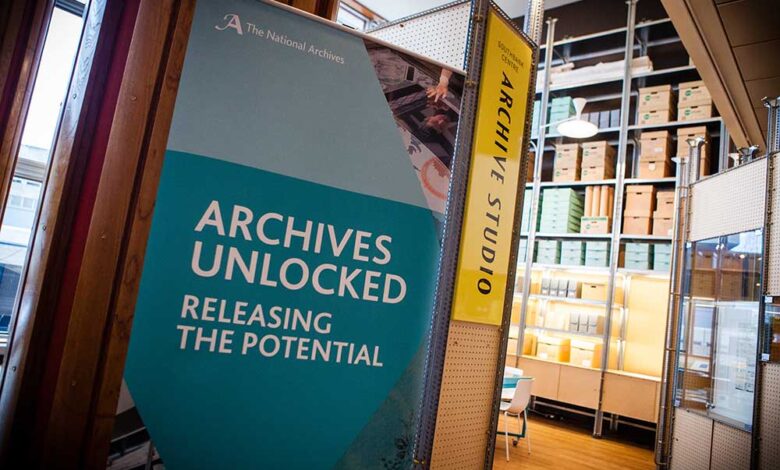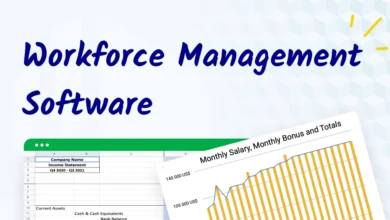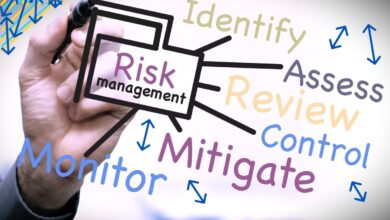Unlocking the Secrets of Archivebate: Exploring the Power of Historical Records in Research and Discovery
Unlocking the Secrets of Archivebate: Exploring the Power of Historical Records in Research and Discovery

Step into the realm of the past and unlock a treasure trove of knowledge with the secrets of Archivebate. In this intriguing article, we delve into the power of historical records in research and discovery. From ancient manuscripts to personal diaries, archives are a reflection of our collective human experience, offering unparalleled insights into bygone eras.
Whether you’re an academic, a historian, or simply curious about our shared history, delving into the archives opens up a world of possibilities. Discover untold stories of bravery and heartbreak, unravel mysteries that have confounded scholars for centuries, and gain a fresh perspective on our present by exploring the past.
However, immersing oneself in the vast archives can be a daunting task. That’s why we’re here to guide you through this journey of discovery. We’ll share practical tips and techniques to navigate archives effectively, harnessing their rich resources to conduct groundbreaking research.
The Importance of Historical Records in Research
Historical records serve as the backbone of research, providing critical evidence and insights into the past. They help us piece together the puzzle of history, shedding light on the lives and experiences of those who came before us. By examining primary sources, such as letters, official documents, and eyewitness accounts, researchers can gain a deeper understanding of historical events and their significance.
Historical records also play a crucial role in validating or challenging existing narratives. They allow us to question accepted truths and explore alternative perspectives. Through meticulous analysis and interpretation, historians can uncover hidden truths, correct misconceptions, and present a more comprehensive understanding of the past.
Furthermore, historical records serve as a vital resource for future generations. They provide a tangible link to our collective history, preserving the voices and experiences of those who may otherwise be forgotten. By studying historical records, we ensure that the lessons and wisdom of the past are not lost to time.
Types of Historical Records
Historical records come in various forms, each offering unique insights into different aspects of the past. Here are some common types of historical records
- Official Documents: These include government records, legal documents, and administrative papers. They provide valuable information about laws, policies, and events of historical significance.
- Personal Diaries: Personal diaries offer firsthand accounts of daily life, emotions, and perspectives of individuals from different time periods. They provide a glimpse into the personal experiences and thoughts of ordinary people.
- Letters and Correspondence: Letters exchanged between individuals offer a window into their relationships, thoughts, and interactions. They provide valuable context and insights into personal and historical events.
- Newspapers and Magazines: Newspapers and magazines serve as contemporary sources of information, reporting on current events, trends, and cultural phenomena. They offer a snapshot of the time period they were published in.
- Photographs and Visual Records: Photographs, paintings, and other visual records capture moments in time, preserving images of people, places, and events. They provide a visual representation of historical periods.
These are just a few examples of the diverse range of historical records that exist. Each type offers its own unique perspective and contributes to a more comprehensive understanding of the past.
The Process of Accessing and Using Historical Records
Accessing and utilizing historical records requires careful planning and research. Here is a step-by-step guide to help you navigate the process effectively:
- Identify Your Research Topic: Start by clearly defining your research topic or question. This will help you narrow down your search and focus on relevant records.
- Locate Relevant Archives: Identify the archives or repositories that hold the historical records you need. This may involve visiting physical archives, exploring online databases, or contacting specialized institutions.
- Plan Your Visit: If you’re visiting a physical archive, make sure to plan your trip in advance. Check the archive’s opening hours, any access restrictions, and whether you need to make an appointment.
- Prepare Your Research Tools: Bring necessary research tools such as notebooks, cameras, and reference materials. Some archives may have restrictions on the use of certain tools, so check their guidelines beforehand.
- Navigate the Archive: Once you’re in the archive, consult finding aids, catalogs, or databases to locate the specific records you’re interested in. Archivists and librarians can also provide valuable guidance and assistance.
- Handle Records with Care: When handling historical records, follow proper archival protocols. Use gloves if required, handle fragile materials with care, and avoid causing any damage to the records.
- Take Notes and Document Sources: As you examine the records, take detailed notes and document the sources you’re using. This will be crucial for referencing and citing your research later on.
- Analyze and Interpret: Analyze the records, looking for patterns, connections, and insights. Consider the historical context in which the records were created and interpret their significance within that context.
- Share Your Findings: Once you’ve conducted your research and drawn conclusions, consider sharing your findings through publications, presentations, or online platforms. This helps contribute to the collective knowledge of the field and inspires further research.
By following these steps, you can navigate the world of historical records with confidence and maximize the value of your research.
Case Studies Showcasing the Power of Historical Records
To truly understand the power of historical records, let’s explore a few case studies that highlight their significance in research and discovery:
1. The Rosetta Stone: Discovered in 1799, the Rosetta Stone provided the key to deciphering ancient Egyptian hieroglyphs. This ancient artifact, inscribed with a decree in three scripts, allowed scholars to unlock the mysteries of an ancient civilization and understand its language and culture.
2. The Diary of Anne Frank: Anne Frank’s diary, written during her time in hiding from the Nazis, offers an intimate and poignant account of life during the Holocaust. It provides a firsthand perspective on the experiences and emotions of a young girl living in extraordinary circumstances.
3. The Dead Sea Scrolls: The discovery of the Dead Sea Scrolls in the mid-20th century revolutionized our understanding of ancient Judaism and early Christianity. These scrolls, containing biblical texts and other writings, shed light on religious practices and beliefs during that time period.
These case studies demonstrate how historical records can uncover hidden truths, challenge existing knowledge, and reshape our understanding of the past.
Challenges and Limitations of Using Historical Records
While historical records are invaluable resources, they come with their own set of challenges and limitations. Here are a few factors to consider:
1. Availability and Accessibility: Not all historical records are easily accessible. Some may be stored in remote locations, while others may be restricted due to privacy concerns or preservation issues. Researchers may need to overcome logistical barriers to access the records they need.
2. Fragmentation and Incompleteness: Historical records are often fragmented and incomplete. They may have been lost, destroyed, or altered over time. Researchers must work with the available records and fill in the gaps through careful analysis and cross-referencing.
3. Bias and Perspective: Historical records may carry biases and reflect the perspectives of those who created them. Researchers need to critically analyze the records, considering the context and potential biases, to arrive at a balanced interpretation.
4. Interpretation and Subjectivity: Interpreting historical records requires subjective judgment. Different researchers may arrive at different conclusions based on the same set of records. It is important to acknowledge and address differing interpretations in historical research.
By being aware of these challenges and limitations, researchers can navigate the complexities of historical records and strive for a more nuanced understanding of the past.
Tips for Effective Research Using Historical Records
To make the most of your research using historical records, consider the following tips:
1. Plan Ahead: Before diving into the archives, spend time planning your research. Identify your research goals, create a timeline, and prioritize the records you want to explore. This will help you stay focused and make efficient use of your research time.
2. Develop Research Skills: Familiarize yourself with research techniques, such as transcription, paleography (the study of ancient handwriting), and archival research methods. These skills will enable you to navigate and interpret historical records more effectively.
3. Collaborate and Seek Assistance: Don’t hesitate to seek guidance from experts, archivists, and fellow researchers. Collaborating with others can provide fresh insights and help overcome research challenges.
4. Be Open to Serendipity: While it’s important to have a research plan, be open to unexpected discoveries. Serendipitous findings in the archives can lead to new research directions and exciting breakthroughs.
5. Cross-Reference and Verify Information: Cross-referencing multiple sources and verifying information is crucial to ensure accuracy and reliability. Compare different records, consult secondary sources, and corroborate your findings to build a robust research foundation.
By employing these strategies, you can enhance the quality and impact of your research using historical records.
Tools and Resources for Accessing Historical Records
Accessing historical records has become easier with the advent of digital technologies. Here are some tools and resources that can assist you in your research:
1. Online Databases: Many archives and institutions have digitized their collections and made them available online. Websites like the National Archives, JSTOR, and Project Gutenberg offer access to a wide range of historical records.
2. Digital Libraries: Online digital libraries, such as the Internet Archive and Google Books, provide access to digitized books, manuscripts, and other historical documents. These platforms offer powerful search capabilities and allow you to access rare and out-of-print materials.
3. Archival Finding Aids: Archival finding aids are guides that provide detailed descriptions of archival collections. They help researchers navigate the records held in different archives and locate the specific materials they need.
4. Research Guides and Blogs: Many universities and research institutions publish research guides and blogs that offer valuable tips, resources, and case studies related to historical research. These can be excellent starting points for your own investigations.
5. Online Forums and Communities: Engaging with online forums and communities focused on historical research can provide a platform for exchanging ideas, seeking advice, and connecting with fellow researchers who share similar interests.
These tools and resources can significantly enhance the accessibility and efficiency of your research, enabling you to delve deeper into the world of historical records.
The Future of Historical Records in Research and Discovery
The future of historical records is poised for exciting developments. Advancements in technology, such as artificial intelligence and machine learning, are transforming the way we analyze and interpret historical records.
Digital tools have the potential to automate certain aspects of research, such as transcribing handwritten documents or extracting information from large datasets. This can save time and enable researchers to focus on higher-level analysis and interpretation.
Furthermore, the digitization of historical records allows for wider dissemination and collaboration. Scholars from around the world can access and study the same materials, fostering a global exchange of ideas and perspectives.
However, it is important to strike a balance between embracing new technologies and preserving the integrity and authenticity of historical records. Ensuring the long-term preservation and accessibility of digital records is a critical challenge that needs to be addressed.
As we look to the future, it is clear that historical records will continue to be a vital source of knowledge and inspiration, fueling research and discovery for generations to come.
Conclusion: Embracing the Power of Archivebate
Unlocking the secrets of Archivebate takes us on a captivating journey through the annals of history. Historical records offer us a window into the past, revealing stories of triumph, tragedy, and everything in between. By understanding and utilizing the power of historical records, we can gain a deeper appreciation for our shared human experience and uncover the hidden gems of history.
Through this article, we have explored the importance of historical records in research, examined different types of records, and discussed the process of accessing and using them effectively. We have also delved into case studies, challenges, and tips for conducting research using historical records.
With the tools and resources available today, accessing historical records has become more accessible than ever before. The future holds even greater potential, as technology continues to advance and open new avenues for research and discovery.
So, whether you’re a seasoned researcher or an enthusiastic novice, embrace the power of Archivebate. Immerse yourself in the world of historical records, and let them guide you on a journey of knowledge, understanding, and enlightenment. The secrets of the past are waiting to be unlocked, and the power of historical records is yours to harness. Happy researching!




One Comment